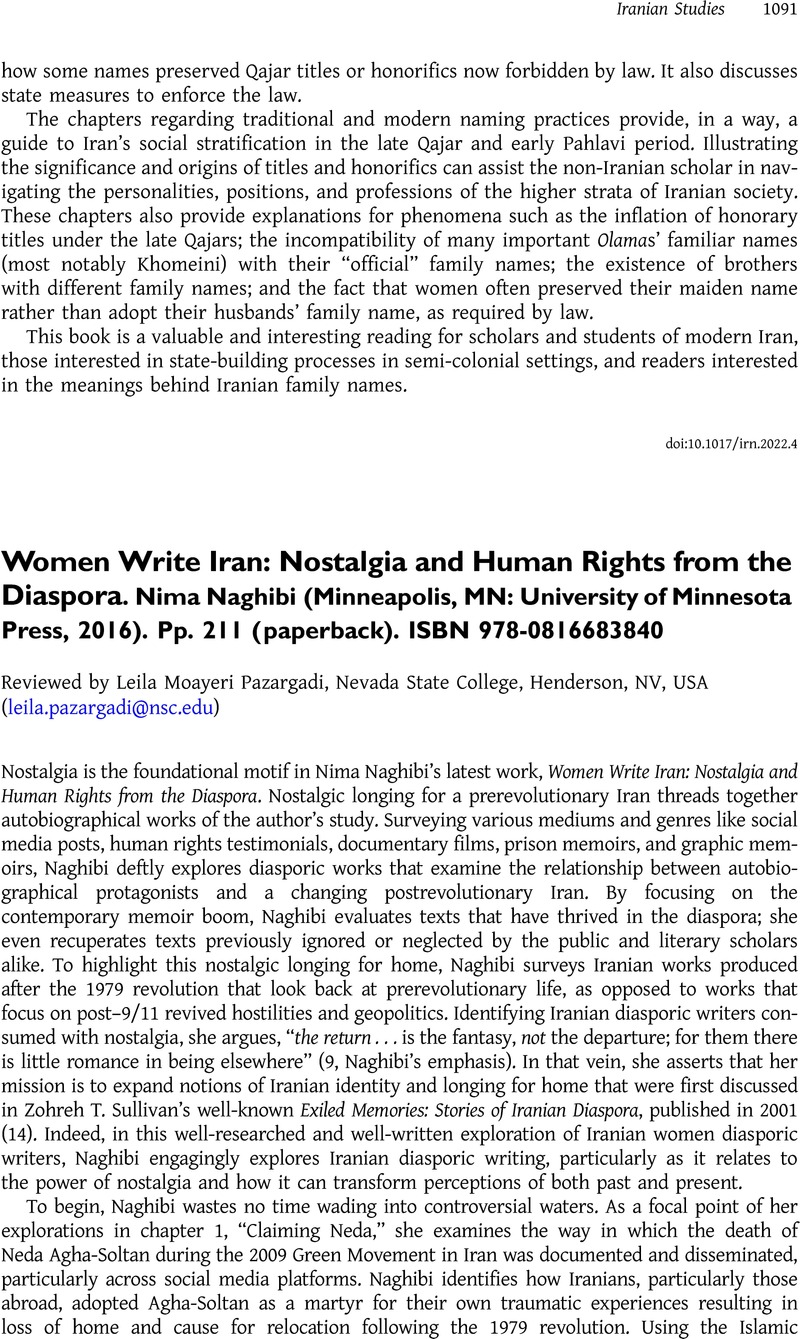No CrossRef data available.
Published online by Cambridge University Press: 16 June 2022

1 Though Naghibi does not explicitly mention Dabashi's assessment of Nafisi here, she alludes to it when she mentions how scholars of Iranian studies have critiqued texts (like Nafisi's) that offer a “a Western imperial gaze, by offering readers a glimpse in the presumably” forbidden “world beneath the veil.” (Naghibi 131; c.f. Nafisi, Azar. 2003. Reading Lolita in Tehran. New York: Random HouseGoogle Scholar; Dabashi, Hamid. 2006. “Native Informers and the Making of the American Empire.” Al-Ahram Weekly, no. 797, June 1. https://www.meforum.org/campus-watch/10542/native-informers-and-the-making-of-the-americanGoogle Scholar).